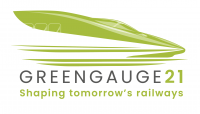Recent reports in the Financial Times and The Economist have suggested that the Government’s promotion of high-speed rail is at odds with the conclusions of the Eddington Transport Review, an influential 2006 study for HM Treasury and DfT. Given that Eddington had found that a comprehensive and efficient transport system is vital to the UK’s economy, it is important to understand what Sir Rod Eddington actually said on HSR.
Most commentators at the time concluded the review was unenthusiastic on the subject of HSR. The report had looked at greenhouse gas effects and suggested there were limits to the level of carbon reduction that could be achieved by HSR from the diversion of air passengers . It thought higher economic returns were available from other investment options and so it said in conclusion:
“step-change measures intended to provide a transformation to the transport system and rely on untested technologies are not, in a world of constrained resources, likely to be a priority.”
The high-speed sceptics felt they had won the day. But most commentators were, in this instance, wrong – as we shall see.
Notably, the report had also said:
“not all high-speed rail line options would be subject to the same issues. For those that do not involve relying on untested technologies and are targeted at solving proven congestion and overcrowding problems, higher and more certain returns are likely than for high-risk options on new links where demands are speculative”
The key phrase of course is easy to spot in these extracts, although many missed it at the time. It was ‘untested technologies” – and of course HSR was then totally proven technology, with 25 years of TGV experience in France, for example in 2006.
The answer was not to become clear until Sir Rod was summoned to give evidence on his work to the Transport Select Committee a year later – when Treasury minders must have still been glowing with the relief having apparently avoided any glimmer of interest in progressing with investment in HSR.
Sir Rod was interviewed on April 16th 1007. The full session is a fascinating cross-examination and is worth reading in full. Here are some pivotal questions and answers from the critical questioning that took place as committee members endeavoured to understand Sir Rod’s views on the subject.
First of all, he clarified that what he meant by ‘untested technologies’ was actually Maglev, not necessarily high-speed rail:
Answer to Q52: “I dismissed Maglev. … The most powerful evidence to dismiss Maglev is that it does not work anywhere in the world. The bottom line is that it works from Pudong Airport to Pudong. That is a relatively small stretch. It is not even to downtown Shanghai; it is to Pudong.”
And then the questions moved on to whether he had “brushed high-speed away”:
Answer to Q57 “No, I have not. … What I have brushed aside is speculative technology like Maglev from one end of the country to the other … and my observation is that in the densest corridors high-speed rail is a critical part of transport infrastructure.”
Next was a discussion over whether the West Coast Main Line would by full by 2015, to which Sir Rod agreed and then went on to agreed that high-speed rail should have a strong business case in the London/Birmingham/Manchester corridor:
Answer to Q60 “we will need to make what I describe as some substantial investments to ensure that we can meet the transport needs of the country beyond 2015.”
Q63 Mr Martlew: If we are talking about a high-speed rail of any sort, whether it is from north to south, whether it goes to Glasgow, Edinburgh or just Manchester or Newcastle, then the planning has to start now, has it not?
Sir Rod Eddington: I agree. We are looking at very long lead times … There is no doubt to me that in the most congested corridors—and you have spoken of them and, as you said, is it London/Birmingham/Manchester or is it London/Birmingham/Manchester and beyond—there should be a strong business case for trains in those corridors.
So, the picture is both clear and clearly different from what many had assumed. Sir Rod Eddington believes that high-speed rail has a role in Britain and accepts there is a need for urgent action to implement it in the key corridor of the West Coast Main Line. His report, with its repeated caveat concerning untested technology, was directed against MAGLEV. But he sees ‘conventional HSR’ as an entirely different matter.
It follows that the comments in the FT and The Economist are misleading. Today’s Government has not rejected the Eddington recommendations in respect of high-speed rail at all.
Why this matters is because most professionals in the transport sector felt that the Eddington Transport Report was sound. Moreover, the ‘friends of Eddington’ continue to influence thinking on matters of transport economics. Just don’t let any of them ever claim that Eddington, after all his detailed studies, was against high-speed rail.
